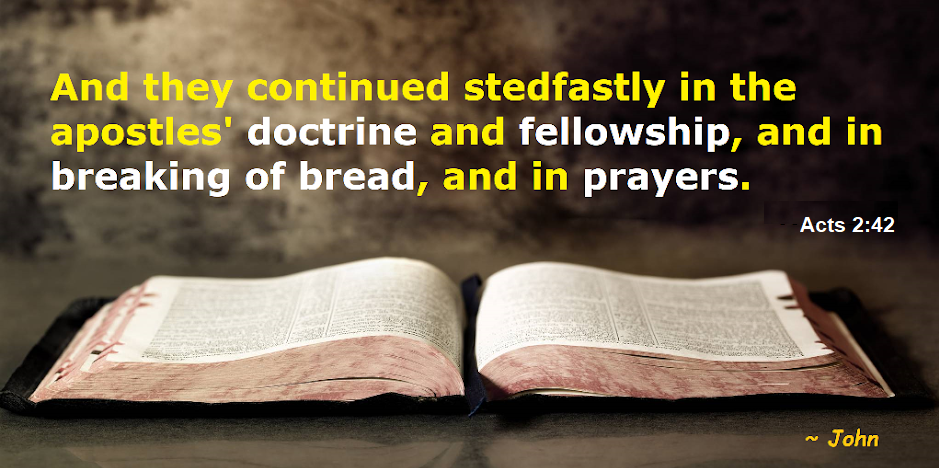Was the Trinity a Doctrine before Nicaea?
Preamble
I find it interesting people consider me to follow Romanism, when I am emphatically Reformed and Puritanical?
Although there is much accurate Biblical doctrine in Romanism, I have always done substantial apologetics and polemics AGAINST that theology (Marian Mediatrix & Co-redemptrix, saint veneration & worship, the multiplicity of sacraments, and of course the Salvation by faith and, merits, etc. fought during the Reformation, and much more) AND the abhorrent historical atrocities they incurred - most particularly during the Crusades [to virtually everyone - Jews, Muslims, real Christians and everyone else in between] and to the Reformers)!
The above reference-image is from Edict of Thessalonica 380AD, and demonstrates the Roman Catholic reference to the then church's position [1].
What is particularly fascinating and erroneous, in this statement is the perceived inaccuracy that the doctrine of the Trinity was introduced in the C4th at Nicaea or Constantinople. This is not only wrong, but easily tested personally!! This claim would mean that the concept or even the word "Trinity" should NOT have existed in Christianity prior to this time.
In fact, it was Arius the Cyrene who famously promoted a Unitarian heresy [Arianism] AGAINST the Apostles' doctrine (Acts 2:42), ~300 years AFTER Jesus the Christ!
I previously searched Schaff's full text of all 38 volumes of the Ante-Nicene Fathers, Nicene and Post-Nicene Fathers, along with many other Christian documents [2]. (The phrase "Ante-Nicene Fathers" refers to the Church leaders prior to the time of Nicaea. It was this section that was the focus of my study.) You can research it yourself.
A. Discussing the Trinity
Entering "Trinity" in the search function and counting the occurrence of "Trinity" throughout the entire set of "Pre-Nicene" - 106 iterations. This may not sound like many; but it is significant. How could the doctrine have been invented in the fourth century if Church leaders in the second and third centuries were talking about it?
B. Defining and Defending the Trinity
And they were not just talking about the Trinity. In many cases they were explaining and defending the doctrine. At other times they were simply referring to the Trinity in a casual manner, as if they knew their readers would know what they were talking about without having to explain it.
C. Ante-Nicene Terms for the Trinity
Sometimes the term was expanded with some interesting adjectives. Some phrases through the search were:
- Holy Trinity
- blessed Trinity
- perfect Trinity
- eternal Trinity
- sacred Trinity
- most Divine Trinity.
- holy and consubstantial Trinity
- consubstantial and indivisible Trinity.
* Isn't it interesting that the HS [grammatical feminine in the Greek], is called a masculine person, HE, not a force in this text? And yes, the Koine emphasises personality, not power, as a point of distinction!
ὁ δὲ παράκλητος τὸ πνεῦμα τὸ ἅγιον ὃ πέμψει ὁ πατὴρ ἐν τῷ ὀνόματί μου ἐκεῖνος ὑμᾶς διδάξει πάντα καὶ ὑπομνήσει ὑμᾶς πάντα ἃ εἶπον ὑμῖν
KATA IWANNHN 14:26 TR
There are other ways of expressing the idea that God is three-in-one than just with the term "Trinity." So a simple search probably ignored references where writers were discussing the doctrine but without actually using the term. So I examined some of the documents.
God is observed as being said to be:
- Three-in-One,
- one Deity in three Persons,
- three Persons in one substance, etc.
Tertullian (c.160-220 AD), even devoted an entire book to defending the Trinity (against Praxeas). (Notice Tertullian lived over a hundred years prior to Nicaea).
** Tertullian didn't correctly describe the doctrine (in Reformed theology), and actually misdirected the Biblical description of the Trinity.
None of this means the doctrine of the Trinity is necessarily true and Biblical. But it demonstrates that the idea of God being Triune, and the use of the word "Trinity" definitely existed long before Nicaea.
D. Source of Confusion?
So why do people claim the Trinity was "invented" at Nicaea or even later? One explanation is that certain people have never actually read the writings of the ECFs for themselves. There are, of course, various hardcopy versions of their writings available. And the above mentioned USB or website are excellent resources of these and many other Christian writings.
A very quick reference to a few ECFs are outlined on Early Trinitarian Quotes [3],
by Matt Slick.
Summary
I encourage folk check some of these sources for themselves before making or believing any bold proclamations about what Church Fathers taught or did not teach (Prov. 18:13,15)
May the Lord richly bless you as your continue to study His Word.
~ John
REFERENCES:
1. Edict of Thessalonica 380AD https://en.wikipedia.org/wiki/Edict_of_Thessalonica
2. ECFs https://www.ccel.org/fathers
3. Slick Matt (2008). Early Trinitarian Quotes by Early Church Fathers https://carm.org/doctrine-and-theology/early-trinitarian-quotes-the-doctrine-of-the-trinity/



